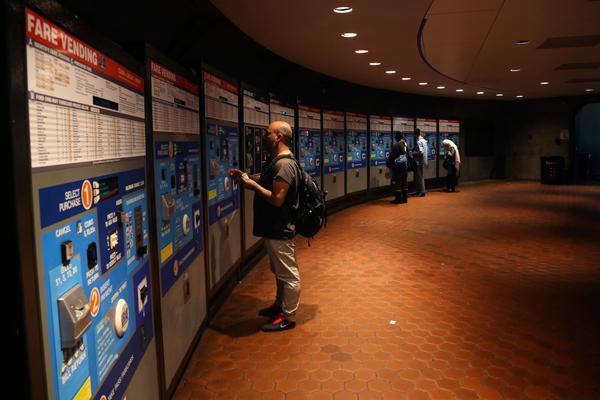Metro riders will start paying a higher fare rate and adjusting to changed hours of operation this summer, Metro announced Friday.
Starting on June 25, most fares will increase by 10 to 25 cents, and the cost of a one-day SmarTrip card will be raised by 25 cents, according to a Metro release. Costs for Metrobus fares will also increase by 25 cents to $2 – among the lowest bus fees nationally – with the $17.50 price for a seven-day pass staying the same, according to the release.
Some Metrobus routes with low ridership will be discontinued, according to the release.
Express and Airport bus rates will also rise by 25 and 50 cents, respectively. Daily parking rates at all Metro stations will change, according to the release.
Trains will arrive less frequently during rush hour with trains from each line leaving every eight minutes. Blue Line trains will arrive more often than its current rate of every 12 minutes. Stations with more than one line per rail, like Foggy Bottom, will have trains every three to four minutes, according to the release.
Off-peak train frequencies will not be adjusted, according to the release.
The hours of operation will extend on Friday and Saturday until 1 a.m., and during weekdays, trains will stop a half hour earlier than the current closing time at 11:30 p.m. On Sunday, trains will operate from 8 a.m. to 11 p.m. – two hours less than the current schedule.
The Board of Directors approved the changes earlier this year to close a gap in the budget and provide allotted time for maintenance to improve safety and reliability, according to the release.
Metro plans to do outreach through signage, social media, emails and text messages to ensure that passengers are aware of the impending changes, according to the release.





